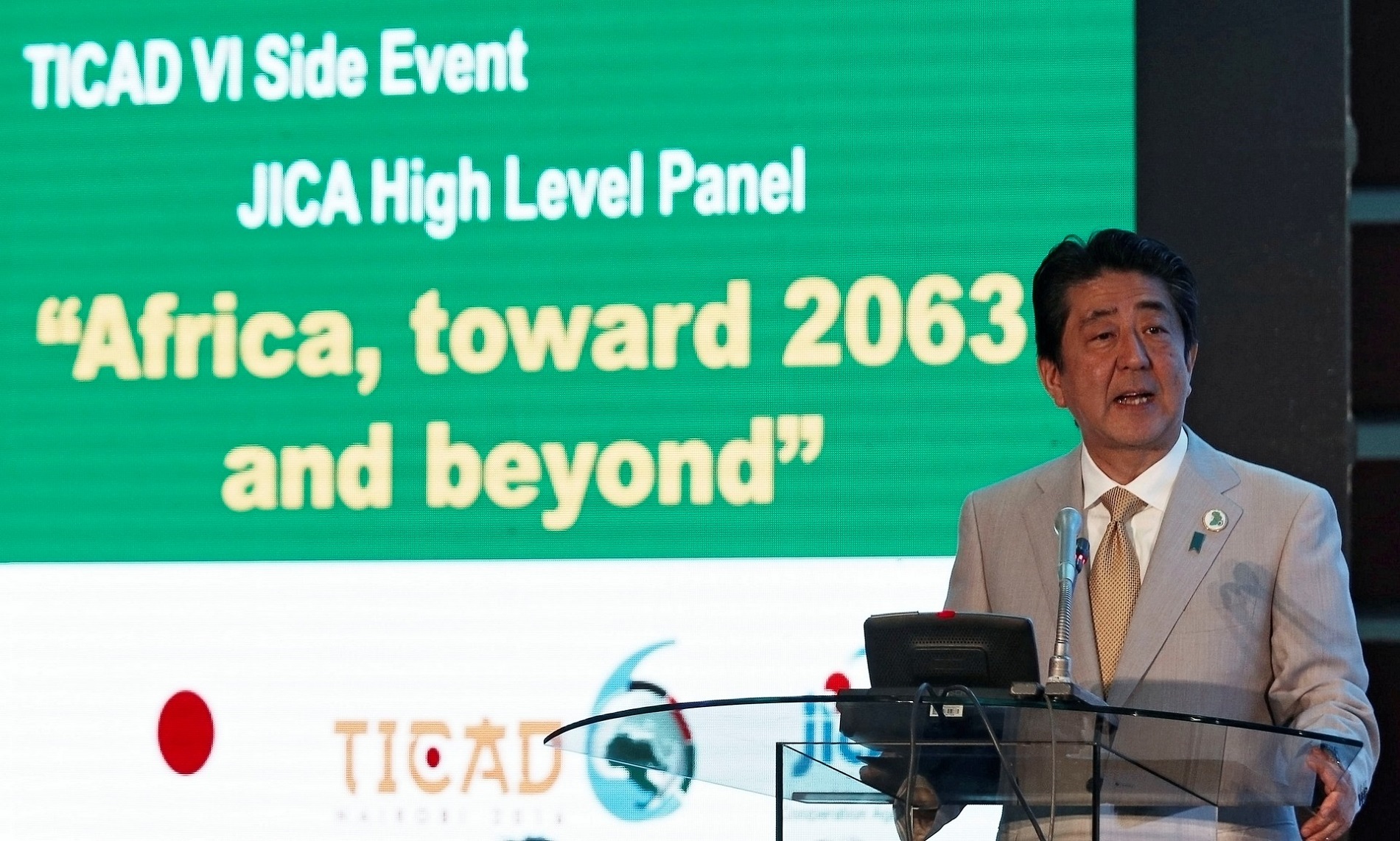Japanese Diplomacy Week from Rio to Nairobi: Soft Power and Hardware
(no votes) |
(0 votes) |
Last week, Japanese Prime Minister Shinzo Abe began his exploits in Rio at the Olympics closing ceremony by taking up the torch for Tokyo as Mario, the famous video game character from Nintendo, known to many for the Pokémon games. Last weekend Mr. Abe was in Nairobi at the 6th Tokyo International Conference of Africa's Development (TICAD) where he pledged USD 30 billion for African states from Japanese partners over the nest three years. We see the two seemingly unconnected events as manifestations of Japanese soft power.
Japan is known to have radically cut its military after WW2, turning soft power into the decades-long key instrument of foreign policy, both economically and culturally. To a certain extent, Mr. Abe himself personifies this approach. A right-wing conservative hawk, he acquired nationwide electoral popularity in mid-2000s, when he skillfully combined soft-speak with tough negotiating stances in order to handle the problem of Japanese people kidnapped by North Korea. As a result, he became a popular TV guest on other matters, assisted by his telegenic manners. Hence, Mr. Abe hardly hesitated when he was offered to put on the huge cap of Mario the Plumber and emerge from a pipe at Maracana Olympic Stadium to bolster the obviously successful PR efforts being used to advance the image of Japan.

REUTERS/Thomas Mukoya
Japan's Prime Minister Shinzo Abe addresses the Japan International Cooperation Agency (JICA) High Level Panel as part of the Sixth Tokyo International Conference on African Development (TICAD VI) in Kenya's capital Nairobi, August 28, 2016)
As for the Olympics, as well as other aspects of his policies, heritage is something special for Mr. Abe. Tokyo won the 1964 Games under the premiership of his granddad Nobusuke Kishi whom he called an example to follow in his autobiography. In 1964, the Olympics were a final act for Japan's postwar reconciliation. The same year the country joined the OECD which codified its industrialized status, among other things by demonstrating the Shinkansen Bullet Train to guests of the Olympics. However, Mr. Kishi failed to retain power during the Games. Mr. Abe, who had the 2020 application approved, may also drop out because his LDP leadership is time-bound. However, he and his government remain popular, while the Japanese are sick and tired of the cabinet reshuffling in late 2000s and early 2010s, igniting an intra-party informal debate on bypassing the constraints on his continued rule.
This task is far from easy bearing in mind the traditional divisions in the Japanese political community and the presence of powerful rivals among his fellow party members. Hence, Mario's super abilities will definitely become useful for reviving the Japanese economy with help from the Games and the associated commercial and infrastructural incentives. If he wins, Mr. Abe may break the postwar premiership record.
The intensive international schedule, including Rio and Nairobi, is Mr. Abe's powerful image booster, as well as a media amplifier for Japanese global business interests, including those working in infrastructure. In Kenya, this factor came to the forefront, as TICAD was for the first time since 1993 held in Africa rather than in Tokyo. The event actually shifted from traditional development assistance, in which Japan has long been a major donor, to the advancement of Japanese-African projects in the continent known as the last huge market. Mr. Abe pledged the desire of Japan to provide Africa with government and private funds in the amount of USD 30 billion by late 2018, including multilateral cooperation with the African Development Bank. Out of this sum, USD 10 billion will go to infrastructure covering energy, railways, seaports and other facilities, i.e. to sectors in which Japan had dominated but had been ousted by China, South Korea and other hardware exporters.
The pragmatic conversion of hardware into soft power seems to outpace the less exacting old-style checkbook diplomacy. Of course, a serious answer would require painstaking analysis of Japanese initiatives in the recipient countries BEFORE and AFTER, as well as their impact on the bilateral relations vis-à-vis Japanese competitors. Nevertheless, since the times of the Cool Japan campaign, Tokyo's approach to soft power has radically changed. Softness appears to increasingly resemble the silkiness of the Silk Road projects, where the ideological and virtual gentleness of the symbolic concept conceal facilities of reinforced concrete and other structural materials.
(no votes) |
(0 votes) |




